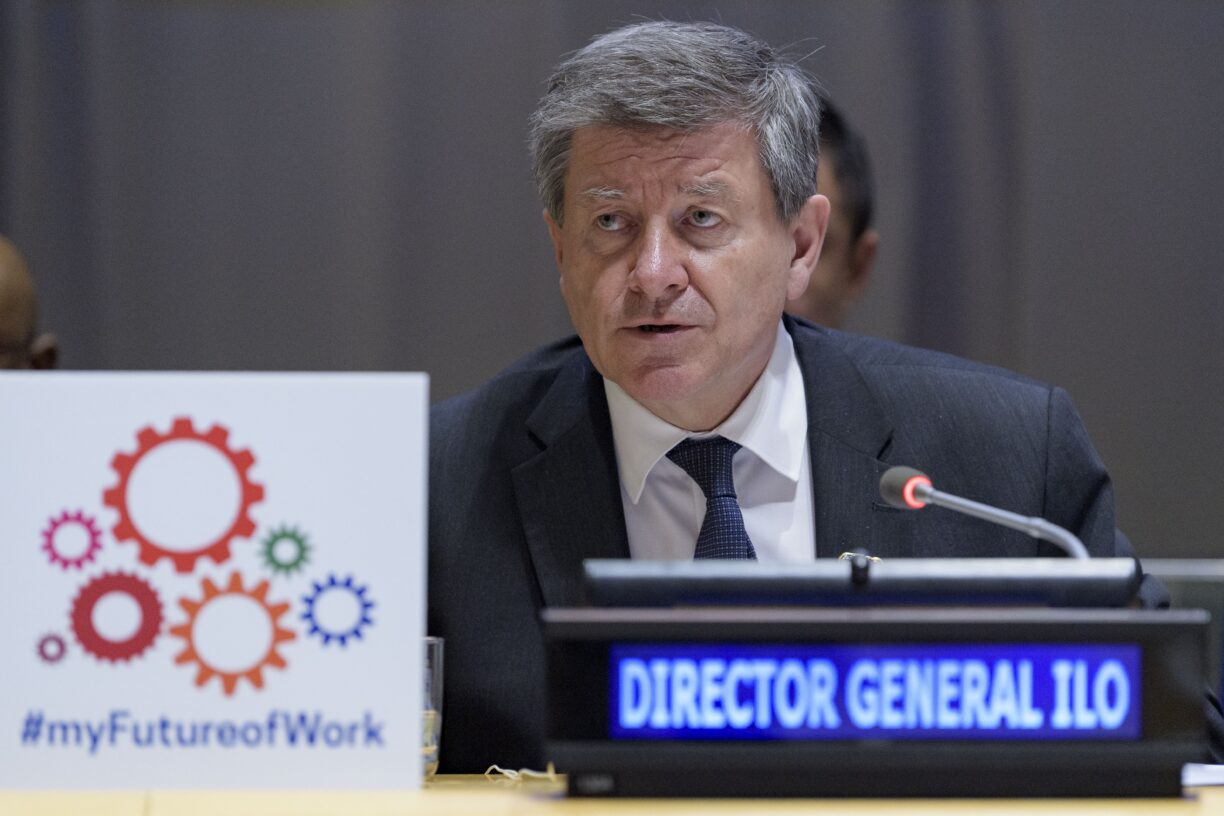Av Ellen Sporstøl
Publisert: 24. June 2020
Using social dialogue and tripartism to tackle COVID-19
Denne kommentaren ble først publisert i vårt nyhetsbrev om internasjonalt arbeidsliv 24. juni 2020. Den er skrevet eksklusivt for FN-sambandet og trykkes med generaldirektørens samtykke.
The COVID-19 pandemic is having a profound impact on the world of work. The response measures have led to massive, worldwide, economic disruption, in multiple sectors and industries. The global economy is expected to contract by three per cent in 2020, and, according to ILO research, the estimated decline in working hours will be equivalent to approximately 305 million jobs lost worldwide.
Like the virus itself, this crisis is evolving. No longer is it just a health or economic crisis, it is a social one too. It is already increasing poverty and exacerbating social and income disparities, within and between countries.
The ILO’s policy proposals for tackling the socio-economic impact of the COVID-19 crisis are structured around four mutually supportive pillars; stimulating the economy and employment; supporting jobs, enterprises and incomes; protecting workers in the workplace; and relying on social dialogue for solutions.
Experience has shown how vital social dialogue is for meeting challenges and promoting recovery. Governments cannot do this alone. Employers’ and workers’ organizations – the actors of the real economy – must play a central role, shaping national policies during and post-crisis, supporting their members, and helping to design a return to work that is safe and keeps businesses running.
Effective social dialogue has to be inclusive. It must address the concerns of all those who work, including small businesses, the self-employed, own-account workers, and those in both the formal and informal economies. To be credible it must address inequalities, promote enterprise sustainability, protect workers, and ensure that no one is left behind - the aim of the Sustainable Development Goals.
We have seen encouraging examples of this cooperation during the COVID-19 crisis. The ILO research has gathered together many examples of countries showing governments and social partners coming together to craft measures to support workers and enterprises, and develop guidelines and codes of good practice to help with the lockdown, the return to work and the reactivation of the economy.
The COVID-19 crisis gives us an opportunity to strengthen the democratic underpinnings of the labour market and our societies. As Prime Minister Erna Solberg said, at the 2019 International Labour Conference, constructive relations between the social partners and effective tripartism, “can help to ensure that our globalized economy is geared towards human-centred growth and development.” Effective social dialogue is – as she put it - “a competitive advantage”.
This crisis has wrought terrible damage, but the recovery gives us an opportunity to use our social partnerships to both improve the conditions of workers and the sustainability of enterprises. The result will be to make our economies more resilient, and our societies stronger.
ILO: The effects of COVID-19 on trade and global supply chains, RESEARCH brief, June 2020.
ILO: COVID-19 and the world of work, 4th Edition, ILO Monitor, 27 May 2020.
ILO: Pillar 4: Relying on social dialogue for solutions, ILO policy brief, 2020.
ILO: The need for social dialogue in addressing the COVID-19 crisis, GOVERNANCE brief, May 2020.
Forthcoming. ILO: Social dialogue on OSH matters in times of COVID-19: ensuring a safe return to work, GOVERNANCE brief, July 2020.

